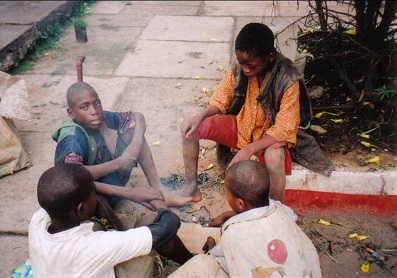Resource 2: Asking questions about feelings
![]() Background information / subject knowledge for teacher
Background information / subject knowledge for teacher
You need to be sensitive when asking questions about feelings. Children might not always want to talk about their feelings in public. You need to ask the kinds of questions that allow children to give answers they feel comfortable with.
One way to do this is to ask questions to the whole class instead of to individuals. Ask questions such as: ‘Who likes …’ and ‘Who doesn’t like …’ with pupils putting up their hands. If they see that they are part of a group, the children will feel less embarrassed about revealing their feelings.
You can do the same by brainstorming different questions. For example, ask: ‘What makes you scared?’ and then write all the pupils’ ideas down on the board very quickly. This way, you won’t make the individuals feel too exposed.
If you want them to talk more intimately about their feelings, organise them into pairs and groups to do similar exercises. They will probably find it easier to speak in a small group.
You can also use stories to explore sensitive ideas – this helps pupils to talk more freely as they do not feel they are talking about their own experiences.
You can make up your own stories to share with your pupils. Or you could use the story of Nigerian street children below to stimulate discussion. Either copy the sheet – one for each group – or read from your copy to the whole class.
After they have heard the story taken from World Street Children News, ask them how they feel about the children’s lives. Are they similar or different to their own lives? How would they feel about living like that? What would they like and dislike about this kind of life?
World Street Children News: Nigeria street children

Okechukwu Chibueze, 14, is an Ebonyi State. His uncle lured him away to join his retail business. Okechukwu knew he ought to be at school rather than on the streets. But poverty drove him out of home to an uncertain future.
‘It was my uncle who brought me to Lagos,’ says Okechukwu. ‘We were selling air freshener, dryer, key holders and other things for him. I found out that one had to trek all over Lagos to sell these things. Sometimes, we would trek to many places without food and without sales. And we were only allowed to take pure water.’
‘One day, a friend of mine told me we should go to where there’s always traffic (jam) and where there is traffic light so that when the light shows red, we could wash people’s windscreens. He told me that the kind ones would give us money.’
‘That is what I have been doing instead of going up and down without food. I didn’t want to starve to death. I must not deny what God has done to me. At the end of the day, one makes up to N500 or more sometimes. On a very bad day, you can make less.’
‘But the trouble now is that many other children are getting into the same business. You see small boys of about seven, eight years doing the same work. I may quit soon or change location.’
Though he prefers what he does today to life in the past, he is far from recommending it to other young people. ‘No, I don’t support any child from a good (wealthy) background to do it. I’m doing it because I have no choice. I would have loved to continue with my education and not drop out. But there was nobody to help me.’
‘Again, there are some car owners and drivers who are very wicked. That they won’t give you money is not the problem. The way they would shout at you and talk to you would make you cry when you got home. Such people should know that if we had the opportunity, we would want to be like their own children, going to good schools and not lacking anything.’
Adapted from: Street Kids, Website
Resource 1: Similarities and differences



